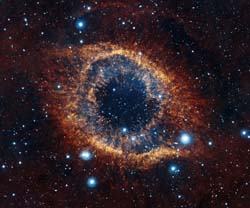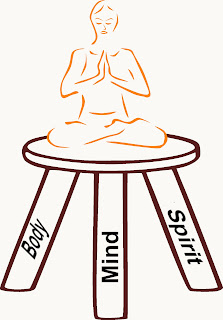The Vedic Thought
Vedic Thought is believe to be the most ancient philosophy of the world. Its principles and fundamentals are widely been used in various religions. It is the origin of many oriental religions and ideologies. Vedas & Upanishads are key sources of Vedic philosophy.
Vedanta
Vedanta means knowledge. Knowledge of life is Vedanta so as, learning the modern day Science is also Vedanta. The meaning of the word Veda from which the word Vedanta derived is knowledge. Vedanta is not limited up to four Vedas and Upanishads. Therefore, all knowledge is Veda, infinite as whole universe. Nobody ever creates knowledge. It is always discovered. Past, present and future is all knowledge. Every book which gives good knowledge is Vedanta. For instance, if some persons go down on the knees before the man who reads the Vedas and if they doesn't pays respect to the person who is studying physics/ chemistry for formulating some new breakthrough for the science world then it is not at all Vedanta. Knowledge is God Himself so, every knowledge is sacred and important. This is called Vedanta.
What does Vedanta teaches?
In the first place, it teaches that one need not even to go out of himself to know the truth. All the past and all the future are here in the present. No one has ever saw the future. When a person think that he/ she is knowing the future, it is only imagination of the future in the present. All is here right now is the only reality - the rest is all imagination. One moment in infinite time is quite as complete and all-inclusive as every other moment. This present is all that is and it should be respected and to be used fully for the positive development. By this only, the future can be made better.
Vedanta does not teaches idea of God that sat above the clouds and managed the affairs of the world without asking our permission, who created us out of nothing just because He liked it and made us undergo all the ups and downs just because He liked it. No, this is not the Vedantic way. Vedanta teaches the God that is in everyone, has become everyone and everything. Every person is having the power. There is no superior. Everybody is equally the same. But it can become so only if person become truly spiritual, since Vedanta is concerned only with spirituality, not the people with vague ideas and superstitions in brains. Its God is not the monarch sitting on a throne, entirely apart. There are those who like their God that way - a God to be feared and propitiated. They burn candles and crawl in the dust before Him. They want a king to rule them - they believe in a king in heaven to rule them all because they have made themselves helpless and dependent on others. They are so lazy, that they do not want to do anything for themselves. They want a personal God, a Saviour or a Prophet to do everything for them. For instance, a rich man never walks, always goes in the carriage, but in the course of years, he wakes up one day parallelized all over. Then he begins to feel that the way he had lived was not good after all. No one can walk for anyone. Every time one did, it was to his or hers own injury. If everything is done for a person by another, then the person will loose the use of his/ her own self. Anything we do ourselves, that is the only thing we do. Anything that is done for us by another never can be ours.
Some people thinks that world is bad and imagine that heaven is somewhere else. This world is not bad, instead we are the part of this world. This world and mother nature is all God Himself; all the heavens - everything suppose good are all here. It is only its presence that we can feel if we are purified by the real knowledge. So, the idea of God in heaven is all superstitions. The Vedic idea is the infinite principle of God embodied in every one of us.It's God Embodied
Vedanta knows no sin. there are mistakes but no sin, and in the long run everything is going to be all right. No Satan - none of this nonsense. Vedanta believes in only one sin, only one in the world and it is this: the moment you think you are a sinner or anybody is a sinner, that is sin. There have been many mistakes in our lives. A person only can learn to succeed after learning from the mistakes. Glory be onto success! Success be onto mistakes! Do not look back upon what has been done. Go ahead! Vedanta proposes no sin nor sinner. No God to be afraid of. He is the one being of whom we shall never be afraid, because He is our own self.
Therefore Vedanta formulates, not only the universal brotherhood, but universal oneness. Every person is the same as any other person, as any other animal - good or bad, anything. It is one body, one mind, one soul throughout. It is the one spirit which is running in whole of the nature around us. We are the part of this nature. Spirit never dies. There is no death anywhere, not even for the body. For instance, one leaf from a tree may fall - does the tree die? The whole universe is my body. See how it continues. But we have seemingly been divided, limited, because of our ignorance and posing our own self as superior. These masses of foolish beliefs and superstitions hinder us in our progress. If we can, let us throw them off and understand that God is spirit to be worshiped in spirit and in truth.
This Vedanta is everywhere, only we must become conscious of it. Be Simple.



Comments
Post a Comment